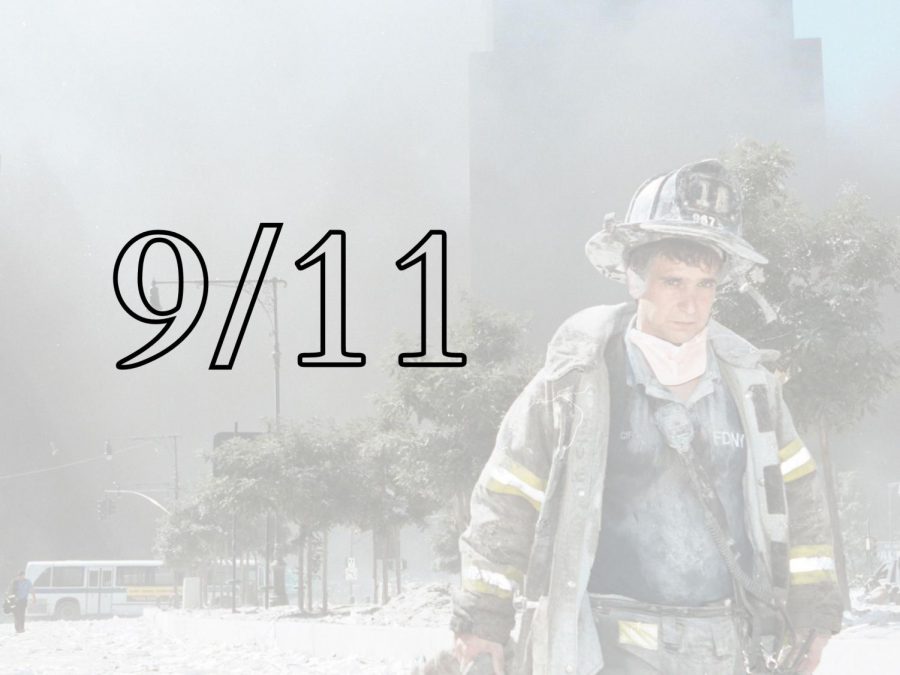9/11: the aftermath
Today marks the twenty-year anniversary of 9/11. The extensive death and destruction triggered an enormous U.S. effort to combat terrorism. When comparing life in 2001 to 2021, Americans live in a completely different world. Several aspects of daily living have changed and can never go back to the normalcy Americans once knew.
September 11, 2021
Twenty years ago on September 11th, the lives of Americans changed forever. Between the Pentagon and the World Trade Center, 2,996 men and women lost their lives to the criminal acts of terrorism. National security, travel, the military and the treatment of brown people look much different today than they did twenty years ago. As the world remembers such a tragedy, the effects continue to linger in the U.S. today.
The news of the event came as a surprise to both the citizens and the government; no one could prepare in enough time to defend themselves. Even F9F fighter jets used by the military did not come equipped with missiles and other ammo. This tragedy uncovered a much-needed change for the safety of Americans and the generations to come.
Prior to 9/11, Americans lived in a rather nonchalant society. Strict security protocol did not apply to the everyday person. The thought of a national threat or terrorism never crossed people’s minds. Today’s standard rules of the airport simply did not exist. Passengers today must take off their shoes, put their bag through an x-ray machine, then walk through a metal detector. Even the family of a passenger may no longer meet at the terminal to see their loved one. These policies ensure the safety of everyone at the airport and on the airplane.
“I remember flying home and I could look down the aisle and see through the windshield of the plane. They would leave the cockpit open for kids to see and learn about the profession. Even the TSA back then wasn’t strict. You couldn’t bring guns or anything on the plane, but they weren’t as serious as they are today,” law teacher John Reagan said.
Once the government realized the potential threats to national security, critical buildings such as the CDC increased security. Agencies such as FEMA, the Federal Emergency Management Agency, became more prevalent as well. Immediately after the attack, Americans feared the possibility of bioterrorism, cyberterrorism and tampering with the water systems. As a result, the U.S. government increased the security of water plants across the country. While the government went to extremes for safety, one demographic received nothing but violence and hatred.
Al-Qaeda, a terrorist organization led by Osama Bin Laden still leaves a sour taste in the mouths of Americans today. The group’s actions left a false reflection on the southwest Asians already living in the U.S. and as a result of the attack, hate crimes skyrocketed. Southwest Asians and Muslims of every color received hatred that made the news daily. In the immediate aftermath of 9/11, hate crimes against Muslims in the US spiked from 28 cases nationwide in 2000 to 481 in 2001. According to the FBI, Anti-Muslim hate crimes have remained high ever since, with a total of 219 incidents in 2019.
“We’ve all since found that a lot of our problems are stemming from younger white males, instead of Middle Eastern Muslim, dark-skinned people. Some of the things that we’ve witnessed as far as mass murderers, serial killing spree murders, and terrorist situations have come from young white males. And very few have come from people of Middle Eastern descent, Muslims or people that are not purely white, Anglo Saxon Protestant,” psychology teacher William Hargis said.
Days after the attack, the War on Terror began. President George W. Bush addressed the nation on September 20, 2001. He introduced a new kind of military response, launching what became the longest sustained military campaign in U.S. history. As time went on, American support for this war varied. Thousands of families in the U.S. lost a loved one from serving in this war. Within 20 years of occupying Afghanistan, over 72,000 American troops and aid, alongside 47,245 Afghan civilians died during the war. Twenty years later, Both President Trump and President Biden began bringing troops, journalists and other American citizens home. As of today, 5,200 troops remain in the capital of Afghanistan, Kabul. After four U.S. presidents residing over this war, it will finally come to an end.
In 2021, a new generation learns about this tragic event each year. While those born after 2001 did not live to see it, the impact of that day exposes itself through the school curriculum and a national day of remembrance. Both those who witnessed the event and those who did not can visit several memorial sites to pay their respects to those the nation lost. Each year, any parent, teacher or adult may face the gut-wrenching question of “Where were you on 9/11?”







